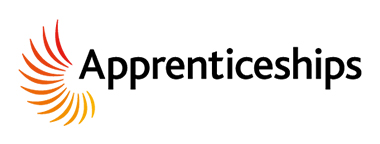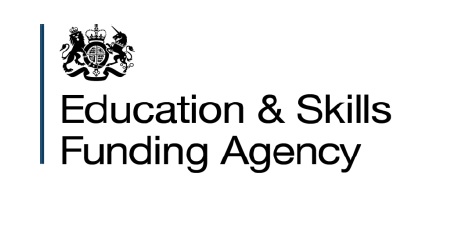Are you looking to employ an apprentice?
or
TO Upskill your existing team?
We partner with businesses to build skilled, engaged and committed teams, bridging the skills gap by developing job-ready professionals for your industry.
Levy funding can be used by both levy paying and non-levy employers to upskill their existing teams or bring new apprentices into the business.
National Upskill are an apprenticeship provider, offering flexible levy and non-levy apprenticeships and upskilling options for businesses of all sizes and budgets.
Our free recruitment service also provides a novel way of reducing hiring hosts and investing in the long-term value of your workforce – Should you have any questions about finding apprentices or upskilling for your business, please contact us at info@nationalupskill.co.uk.
Up to 25% (increasing to 50% from the 1st April 2024) of your previous year's unused apprenticeship funds can be transferred to other businesses or perhaps charities of your choice. This is calculated as 25% of:
National Upskill can help you to identify and transfer unused levy funds to businesses of your choice in need of apprenticeship funding. This is used to pay for 100% of the training and assessment costs of the apprenticeship, up to the funding band maximum.
Funds donated can only be used for the training of a new apprentice. Please note that this doesn't have to be a new employee it can be used to upskill existing team members, it cannot, however, be allocated to someone already on an apprenticeship.
Are there age restrictions on apprentices?
Apprentices must be 16 or over and there is no upper age limit. There are certain employer bonuses for offering apprenticeships for 16-18's.
How much does it cost for an apprentice?
Employers are either classed as non-levy or levy defined by their annual payroll being less than (non-levy) or more than (levy), £3m per annum (see above what is the apprenticeship levy).
How much do I pay an apprentice?
The National Minimum Wage as defined by Government is set out below. However, this is the minimum you pay by law - You as the employer can choose to pay more dependent on a range of factors such as the industry, sector and competitor salaries.
As of 1st April 2024, the National Minimum Wage for apprentices has increased. The new rates, depending on age, are as follows:
What if we run out of money in our levy fund?
Funds are paid into your levy fund monthly. Likewise, funds come out monthly for any apprentices you have on programme. Unspent funds are retained by the HMRC after two years.
Whilst you have funds in your levy you pay 100% of the training costs monthly from your levy, when you have insufficient funds and wish to take on further apprentices you pay 5% and government pays 95% which is the non-levy model. You resume payments when you have funds in your levy again.
Can we upskill existing staff?
Yes. although apprenticeships are not designed to solely recognise existing skills, knowledge and behaviours, so for an existing staff member who has perhaps been doing the same job for a period of time, this is not simply gaining a qualification and certificate to reflect their existing experience.
Apprentices are expected to learn substantial new skills and knowledge. An existing staff member for instance may need to take on new and additional tasks and responsibilities to learn these new skills, knowledge and behaviours.
Can we work with more than one training provider?
Yes. There is a broad range of apprenticeships, and it is unlikely one provider would deliver everything you need as a business, employers may wish to work with two or three providers for this reason. You may however want to limit the number of providers you work with, as each partnership requires management and monitoring.
What are gateway and end point assessment?
Apprenticeships have different phases, primarily enrolment, induction, teaching, learning and assessment and finally end point assessment. The TLA (teaching, learning and assessment) phase is the longest at a minimum of 12 months through to 48 months. During this period as well as the teaching, learning and assessment, functional skills and any other qualifications will be delivered and achieved.
Only once all component parts have been successfully completed and quality assured will an apprentice pass through ‘gateway' into EPA (end point assessment). Gateway is effectively a milestone (virtual gateway) to pass through once the learning part is complete, and ahead of the end point assessment taking place.
End point assessment is then conducted by an external awarding body, independent of the training provider. End point assessment activities vary by apprenticeships. See specific apprenticeships for details.
Does the employer pay NI for apprentices?
There are some exceptions, you may not be required to pay Class 1 National Insurance contributions if the apprentice is:
This only benefits the employer as the apprentice continues to pay NI although some apprentices may be exempt from class 2. Your payroll team should check out current HMRC's guidance on paying National Insurance contributions to remain compliant.
Who provides the apprentice's training?
To access apprenticeship funding from your levy account or direct from the EFSA you must work in partnership with an approved Apprenticeship training provider who is registered on the APAR register (Apprenticeship providers and assessment register).
National Upskills registration number is 164894.
Your chosen apprenticeship provider will oversee the apprenticeship programme and lead on all the teaching and learning, which is organised in partnership with both the employer and the learner. Each apprentice will have a tailored ‘ILP' (individual learning plan) and all three parties – employer, learner and training provider sign commitment statements which set out expectations on the three parties.
80% of the apprentice's time is spent on their day job, and 20% (up to 6 hours per week) is required to be OJT ‘off-the-job training'. This is multifaceted with a broad range of activities which count as OJT, and feed directly into the ongoing teaching, learning and development of the apprentice.
Partner with National Upskill to help shape your ideal workforce
If you have any questions for our team, please get in touch at info@nationalupskill.co.uk
You can also call us at 0333 772 9534.

